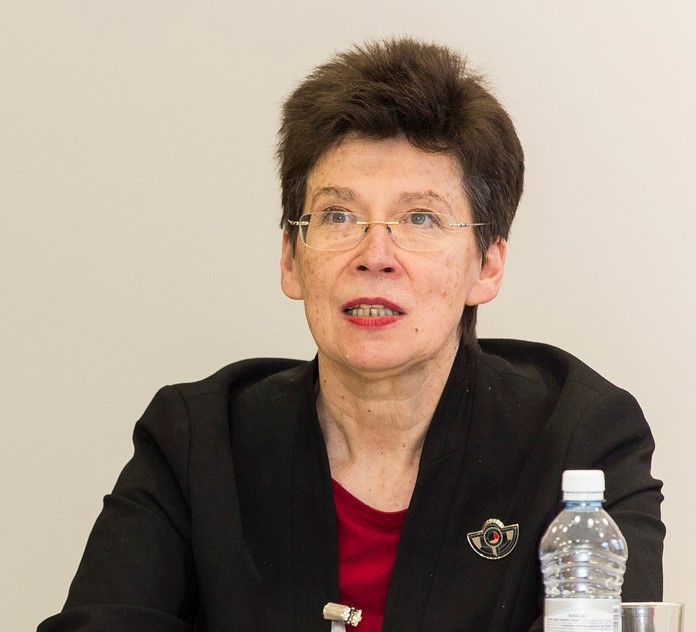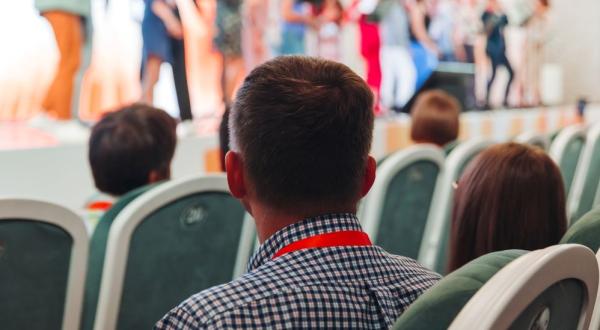RSU Institute of Public Health Plans to Study the Effects of COVID-19 on Sexual and Reproductive Health
Professor Gunta Lazdāne, the director of the Institute of Public Health at Rīga Stradiņš University (RSU), explains that the pandemic has disrupted our daily routines and affected everyone both in Latvia and worldwide. Like other public health institutions the RSU Institute of Public Health continues working remotely.
There is no doubt that the pandemic has affected the institute’s work and implementing several projects that involve direct human contact has become more difficult. At the same time, the COVID-19 crisis has challenged researchers to new works and research, both in terms of the impact of the virus on people’s daily lives and its various manifestations.
Professor Lazdāne (pictured) speaks about the new projects and challenges that have arisen from the pandemic.

How would you describe the Institute of Public Health’s involvement and contribution in combating the negative effects of COVID-19?
We are very active and take advantage of various opportunities. We were, for example, approached by ANSER, which is a large international network with headquarters in Ghent University, Belgium. The network focuses on sexual and reproductive health and policymaking. RSU has been a member of this network since 2017. Around a month ago, when the pandemic and its impact on various fields began to be analysed, our partners invited us to join an international project that would study the impact caused by the COVID-19 on sexual and reproductive health for the upcoming several months. Alongside the aforementioned study, RSU launched a study together with TNS on the factors and habits that affect people’s sexual and reproductive health in Latvia. We very much hope that we will be able to implement this project and in-person interviews are scheduled to begin in September at the latest.
How extensive is this study?
More than 40 universities worldwide are participating in the study. A joint remote meeting of all project participants was held a couple of days ago. To be able to act as an equal partner to other countries involved in the project, we need to attract at least 200 respondents. It is essential that we address people with questions about how COVID-19 and crisis-related restrictions has affected their health.
The situation varies between different countries. In some countries access to contraception and various healthcare services is limited. Additionally, serious reports on the increase in incidents of sexual violence are coming in from several countries. Research outcomes will be compared by coordinators both in London (London School of Hygiene and Tropical Medicine) and Ghent. The results will help us see the whole picture and be able to understand the differences between countries and see where Latvia stands in relation to others, and how COVID-19 is affecting us.
The Institute of Public Health has signed an agreement with the Ministry of Health on the implementation of a large-scale national project, the aim of which is similar – to find out how sexual and reproductive health in Latvia is changing and developing. Is this research also related to COVID-19?
The research methodology for this project does not cover COVID-19, because it was developed in 2018. We will now coordinate with the Ministry of Health for the possibility to include questions about COVID-19 and the impact of the crisis situation on sexual and reproductive health in the questionnaire. The work will commence in the autumn, and the project will run for eighteen months. During this time we will survey the Latvian population, analyse the answers, formulate conclusions and make recommendations on the possibility of improving sexual and reproductive health in Latvia, including reducing the impact of COVID-19.
In this national study, we want to find out about various features, such as whether contraceptives are widely available. In China and India the situation is grave as many condom factories have closed. In Latvia, we are dependent on imports and we do not yet fully know whether factory closures elsewhere in the world will have an impact on product availability in Latvia. We do not want to guess and put forward any hypotheses, but rather base conclusions on research.
Will it be possible to compare sexual and reproductive health over time?
The last such study was conducted in 2011, so nine years ago, and we now have essentially nothing to refer to when trying to answer the questions: ‘What is the state of sexual reproductive health in Latvia?’ ‘Is it good or bad?’ ‘How do people evaluate it?’ ‘What are the main problems?’ Of course, we can extract some small bits of information from the overall statistics, for example, about teenage pregnancies, which are currently declining slightly. We are grateful to the Ministry of Health that, despite their other priorities, they have not forgotten about sexual and reproductive health.
It is, however, not possible to find out how a person evaluates their own health from statistics. This can only be found out from answers on specific questions in a survey. For example, ‘I rate my health as good or bad because I do or don’t have access to certain services.’ The new questionnaire, which is currently in the pilot phase, partially coincides with the 2011 questionnaire. The first survey in this area in Latvia was conducted already in 1997, so we will be able to compare changes over a long period of time.
Internationally we are sometimes asked: ‘If you have such poor indicators of effective contraception, how do you get a drop in abortions?’ We will try to find the answer to this question in the 2020 study.
You have extensive experience working at the World Health Organization (WHO). Its role and importance have grown in the face of the global pandemic. Some countries follow stricter rules, and some are more liberal. How do you assess the impact of the WHO and the willingness of member states to listen to the recommendations?
Different countries have different perceptions of the recommendations. We must remember that the main decision-maker in the WHO is the World Health Assembly. A few days ago, for the first time in the history of the WHO, the Assembly, in which all Member States participate, met and took decisions remotely.
I have had the honour of participating in this largest world health forum while working for the WHO. Countries discuss and evaluate what is important to them and what is not together. Decisions are made by evaluating every word. Some countries agree and some countries do not. There is always an attempt to find a common ground, but if some countries cannot accept certain aspects, either for political reasons or for religious reasons, they have the right to refuse this document, because all WHO documents are only recommendations.
However, the WHO brings together key experiences and expertise from different countries, so its conclusions and recommendations during a pandemic are very important and need to be listened to. Latvia seems to be succeeding in this!
Related news
 Experts from across Europe will participate in this year's Rare Disease ForumFor RSU Employees, Conferences, workshops, Research, For Students
Experts from across Europe will participate in this year's Rare Disease ForumFor RSU Employees, Conferences, workshops, Research, For Students


